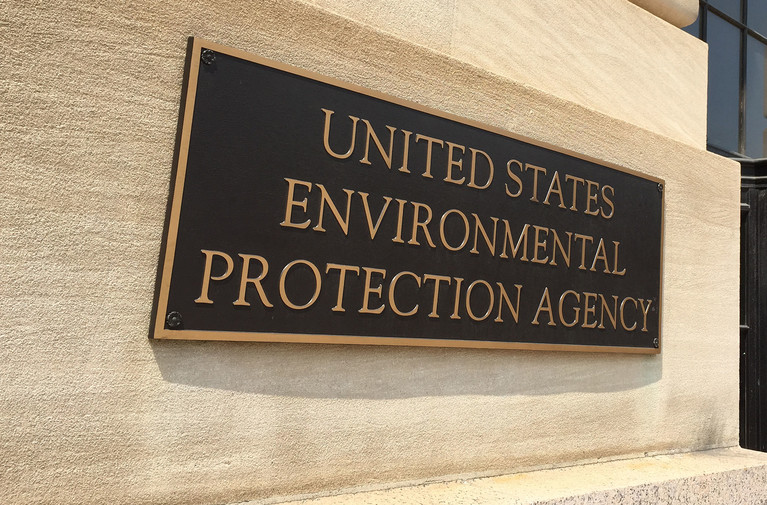DC Circuit Rules EPA Grant Terminations Lawsuit Belongs in Court of Federal Claims
Washington, D.C., September 4, 2025 — In a significant ruling on September 2, 2025, the U.S. Court of Appeals for the District of Columbia Circuit determined that a lawsuit challenging the Environmental Protection Agency’s (EPA) termination of $20 billion in climate grants was filed in the wrong court. The 2-1 decision vacated a lower court’s injunction, holding that the claims are “essentially contractual” and must be pursued in the U.S. Court of Federal Claims under the Tucker Act, marking a legal victory for the Trump administration’s efforts to cancel Biden-era environmental grants.
Background of the Case
The dispute centers on the EPA’s termination of grants under the Greenhouse Gas Reduction Fund (GGRF), a $27 billion program established by the Inflation Reduction Act (IRA) of 2022 to support clean energy and climate projects. The grants, including $16 billion for the National Clean Investment Fund and Clean Communities Investment Accelerator, were awarded to nonprofit “green banks” such as Climate United Fund, Coalition for Green Capital, and Power Forward Communities. The funds, held at Citibank, were frozen by EPA Administrator Lee Zeldin in February 2025 and terminated in March, citing concerns over program integrity, self-dealing, and conflicts of interest.
In April 2025, U.S. District Judge Tanya Chutkan issued a preliminary injunction, ruling that the EPA’s actions were “arbitrary and capricious” and violated the law and Constitution by undermining Congress’s appropriations authority. The injunction required Citibank to continue disbursing funds to grantees. However, the EPA appealed, arguing that the dispute was contractual and fell under the jurisdiction of the Court of Federal Claims, as mandated by the Tucker Act for claims against the federal government seeking monetary damages.
The D.C. Circuit’s Ruling
In a majority opinion written by Judge Neomi Rao, joined by Judge Gregory Katsas—both Trump appointees—the D.C. Circuit reversed Chutkan’s injunction. The court held that the grantees’ claims were “essentially contractual” because they sought to enforce funding agreements, and thus belonged exclusively in the Court of Federal Claims, which handles contract disputes under the Tucker Act. The majority dismissed the grantees’ constitutional claims as “meritless,” arguing that the EPA’s actions did not violate the separation of powers, as the agency planned to recommit the funds with proper oversight.
The court also noted that the July 2025 tax and spending bill repealed the GGRF program, relieving the EPA of any statutory obligation to disburse the funds, though the agency expressed intent to redirect them. Rao emphasized the government’s interest in prudent management, stating, “The district court disregarded the government’s representations that it planned to properly supervise, rather than abandon, the grantmaking process.”
In a sharply worded dissent, Judge Nina Pillard, an Obama appointee, criticized the majority for enabling the EPA to “seize the grantees’ money based on spurious and pretextual allegations” and “gut implementation of major congressional legislation.” Pillard argued that the funds, already obligated and disbursed to Citibank accounts, belonged to the grantees, and the EPA’s termination lacked a lawful basis. She warned that the decision could allow the agency to “immediately and irrevocably seize” the funds, potentially forcing grantees to shut down before resolving claims in the slower Court of Federal Claims.
Reactions and Next Steps
The EPA celebrated the ruling as a validation of its stewardship of taxpayer dollars. An agency spokesperson stated, “Administrator Zeldin cancelled these grants due to well-documented concerns about self-dealing, unqualified recipients, and reduced oversight.” The agency pointed to evidence, including a “gold bars” video, as justification for its actions, though investigations have found no “meaningful evidence of criminality” by Biden officials.
Grantees, led by Climate United Fund CEO Beth Bafford, expressed disappointment but vowed to continue their fight. “We stand firm on the merits of our case: EPA unlawfully froze and terminated funds that were legally obligated and disbursed,” Bafford said, indicating plans to seek review by the full D.C. Circuit, which has a majority of Democratic-appointed judges, or appeal to the Supreme Court.
The ruling aligns with recent Supreme Court orders in cases involving education and National Institutes of Health grants, reinforcing that grant termination disputes belong in the Court of Federal Claims. However, the decision contrasts with rulings from the Ninth Circuit and district courts in Massachusetts and Rhode Island, which found jurisdiction under the Administrative Procedure Act (APA) for similar challenges, potentially setting the stage for a circuit split.
Broader Implications
The D.C. Circuit’s decision could have far-reaching consequences for environmental and climate initiatives funded under the IRA. The Court of Federal Claims, limited to awarding monetary damages, cannot reinstate grants or provide injunctive relief, potentially delaying justice for grantees who may face closure due to funding disruptions. Litigation in the claims court could take over a year, exacerbating financial strain for recipients, particularly tribal communities expecting $1.5 billion for clean energy projects.
The ruling also underscores ongoing tensions between the Trump administration and Biden-era policies, with Zeldin’s termination of $600 million in environmental justice grants under the Thriving Communities Grantmaking Program facing similar legal challenges. A Maryland district court ruled those terminations unlawful in June 2025, highlighting conflicting judicial interpretations.
As the grantees weigh their appeal options, the case may escalate to the Supreme Court, potentially clarifying the jurisdiction of grant termination disputes and the balance of executive authority over congressional appropriations. For now, the EPA can proceed with its plans to terminate the GGRF grants, leaving the future of these climate initiatives uncertain.
For more information, contact the EPA Office of Public Affairs at public.affairs@epa.gov or visit www.epa.gov.
